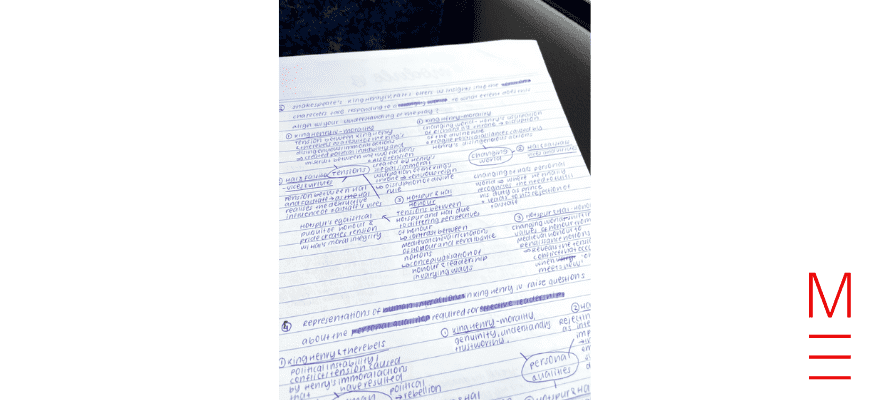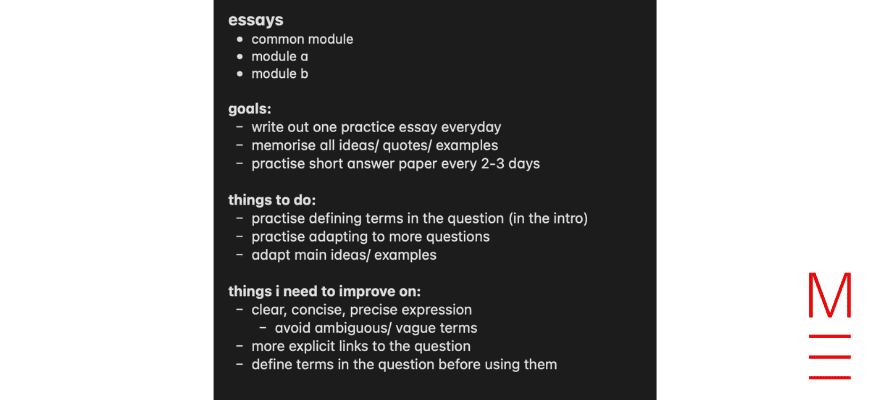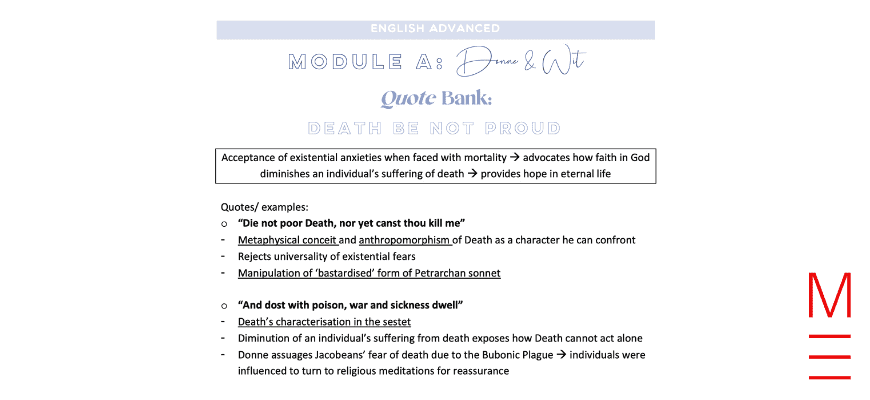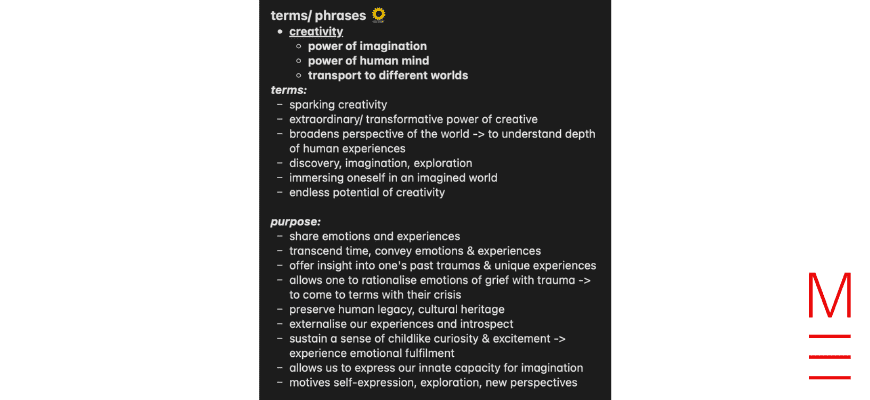Welcome to Matrix Education
To ensure we are showing you the most relevant content, please select your location below.
Select a year to see courses
Learn online or on-campus during the term or school holidays
Learn online or on-campus during the term or school holidays
Learn online or on-campus during the term or school holidays
Learn online or on-campus during the term or school holidays
Learn online or on-campus during the term or school holidays
Learn online or on-campus during the term or school holidays
Learn online or on-campus during the term or school holidays
Learn online or on-campus during the term or school holidays
Learn online or on-campus during the term or school holidays
Learn online or on-campus during the term or school holidays
Select a year to see available courses
Science guides to help you get ahead
Science guides to help you get ahead
Have you ever been disappointed with an internal assessment? Here's how you can bounce back!

Join 75,893 students who already have a head start.
"*" indicates required fields

Join 8000+ students each term who already have a head start on their school academic journey.
James Ruse Agricultural High School and 99+ ATAR student, Sophia Dang shares how she went from being disappointed with her Internal Mark to scoring 97 External for HSC English Adv.
Name: Sophia Dang
School: James Ruse Agricultural High School
University course: Bachelor of Medical Studies/ Doctor of Medicine at the University of New South Wales (UNSW)
ATAR: 99.15
Hi! My name is Sophia, and I graduated from James Ruse.
Aside from studying, I volunteer at St John Ambulance and run an online art store with my mum and sister. In school, I was a member of the Prefect Body, and also coached the Girls’ Open Basketball team.
I know that Year 12 can come with so many different challenges. Let me share my experiences studying for the HSC, where I learnt how to bounce back from disappointment to boost my marks and my confidence.
Table of contents:
Boost your HSC English Advanced marks!
Expert teachers, detailed feedback, and 1-to-1 support to help you excel. Book your free trial today.

Throughout Year 11 and most of Year 12, I had always enjoyed English. I loved to participate in class discussions, write about interesting concepts, challenge different perspectives, and had generally been achieving highly in most of my assessments.
However, there came a day when an email popped up on my phone. It read ‘Module C Assessment Results’. Excitedly, I clicked open the email, only to see a single-digit written on the top of my paper. The assessment was marked out of twenty.
You can imagine my sheer shock and disappointment. I checked, double-checked and even triple-checked to make sure that nothing had been missing, and that my mark had been written down correctly.
I didn’t know what to do. I knew I hadn’t received the best marks in a couple of assessments before, but nothing had ever been as shocking as this one, especially because this was in Year 12.
So, if you’re feeling this way, don’t worry. I understand what you are going through.
Our task was to deliver a 5-minute presentation (and include a relevant poster) on our prescribed text, 1984 by George Orwell, and a related text.
Remember, it is important to read your prescribed text at least twice!
I read my novel approximately three times:
Then, you need to focus on your presentation skills.
Be confident. Be engaging. Be insightful.
Are you speaking loud enough? Have you paced yourself well? Are you speaking with clarity and confidence?
You should always keep these aspects in mind for any multimodal presentation.

For Module A, I studied John Donne’s poetry (which included 8 different poems!) and Margaret Edson’s play, W;t.
I researched and annotated all eight poems before we studied them in class, which helped me develop a general understanding of the text. By the time we came across it in class for the first time, I already had an overview of key concepts and ideas, which made analysing the play and poems significantly easier.
I also used this Matrix article, ‘The Ultimate Donne and W;t Cheatsheet’ which provides a useful summary of important ideas and a useful annotated sample response.
We wrote either an imaginative, discursive or persuasive, as well as a reflection. It was a hand-in task, and we were given a stimulus.
The most important thing you need to do in your Common Module essay is to always link back to the human experience.
What is the composer trying to convey? How does this link to the human experience? What do we, as audiences, learn from this?
Understand the key terms in the rubric (such as anomalies, paradoxes, inconsistencies, etc.) as they are often used in essay questions.
Module B is probably one of the most difficult modules in this course. This is due to the extensive range of essay questions (that can often be quite eccentric too) that may be assessed.
Initially, I found it difficult to understand Shakespeare’s purpose when he wrote ‘King Henry IV’ (Why were there three different Henry’s, anyway?).
So, I read through this Matrix article ‘Module B: Understanding Henry IV Part 1 – Overview’, which clearly broke down the plot and concepts.
And, to prepare me for the worst, I practised brainstorming and adapting to at least 25 different essay questions for my trial and HSC exams.

I decided to write a discursive piece, which was probably not the best idea since I didn’t have much experience or practice writing in this textual form.
Unlike critical essays, creative writing never really came naturally to me. Creative writing is also often subjective, and so it was often difficult to know what the markers were looking for.
And so, when I received my very low marks, I knew I was doing something wrong. No way would I have scored 97 external in English Adv if I continued to write like that.
I needed to change the way I approached the subject.
It is so important to always ask others for help, whether you’re performing exceptionally well, or find yourself struggling just a little. There is always room for improvement.
I bombarded my teacher with questions and asked her to review my hand-in assessment. She explained what I had been doing wrong all this time.
If you find yourself lost, ask for feedback from your teacher, tutor, or peers. At Matrix, I found there were so many experienced teachers who specialise in English that could help me out.
Want to get ahead in the HSC?
Join 20,000+ students who’ve boosted their marks with expert teachers, 1-to-1 help, and HSC mock exams.
Evidently, creative writing had been one of my weakest areas in English Advanced.
I scrapped all my past creatives and started writing up new drafts. I told my teacher and peers about all the different ideas I had brainstormed, which definitely helped me eliminate the ‘cliché’, less interesting ones.
Then, I created several drafts for my imaginative and discursive. I incorporated motifs, intertextual references, and a meaningful purpose into my work.
But what’s the point of having a creative piece, without knowing how to adapt it to the stimulus?
So, I looked for some Module C questions to brainstorm different ways I could change up my work to fit the stimulus. I found this article ‘20 Craft of Writing Practice Questions to Get You Mod C Ready’, which was gave a diverse range of stimuli.
In exams, you can never expect the essay question or stimulus to be exactly the same as what you have prepared. So, the most important thing for English is practising to adapt to different questions.
This may seem like common sense. However, so many people just regurgitate their pre-prepared responses and completely ignore the exam question!
1. Adapt
Find as many questions as you can for each module, and brainstorm different ways you could adapt your argument or your creative piece to them.
2. Practise
Physically handwrite your response on paper to really get a feel for what it would be like writing for 40-minutes, or even for two hours straight.
One month leading up to the HSC, I made sure to practise writing my responses on paper as often as possible.
Your writing speed increase and the way that your mind thinks and responds to the exam question will also improve significantly.
3. Refine
As the HSC exams were approaching, I had set out distinct goals which were aimed at improving and really refining my writing.
Since I felt quite confident in writing essays, I just focused on creating explicit links to the question and refining my written expression so that everything was clear and concise.
On the other hand, I made sure to continually practise writing out my Module C creative and reflection.

Ultimately, it is up to you to know where your strengths and weaknesses lie.
Having a pre-prepared essay can only get you so far. I also prepared a quote bank for each module, which covered varying concepts and purposes (for example, quotes based on text form or characters)
I practised switching these additional quotes in and out of my essay, depending on whether or not my original arguments suited the essay question.

The earlier you start memorising, the easier it will be to recall information in the exam.
At least two months leading up to the HSC, I started memorising my essay quotes and analysis. This meant that I didn’t need to stare blankly at my exam paper trying to remember Shakespeare’s quote. Instead, I could dedicate all my focus to writing my essay and adapting to the exam question.
Every day, I would randomly choose a few essay questions and create a mind map brainstorming ideas on how to adapt my arguments to the question.
Here is a list of interesting essay questions I used to practise adapting my essay: ‘31 Module B Practice Essay Questions to Save Your HSC’.
I summarised all of Donne’s poems and made sure I had a general understanding of each poem (in case the exam specified a particular poem). After adapting to questions on mindmaps, I practised writing full essays under timed conditions approximately two months before the HSC.
Starting early is so important, as you need to get comfortable with constantly writing and thinking on the spot.
Now, there is no set way to prepare for Module C.
I prepared two imaginative and one discursive piece, each with a reflection. However, you could also memorise all your past creatives and use whichever is best suited for the exam stimulus.
I’d say that Module C was one of the most difficult modules to prepare for since there is such a diverse range of stimuli that could potentially be assessed. So, I compiled a long list of different stimuli and then brainstormed ways to adapt my ideas. If one of my creatives didn’t fit into the stimulus, I’d try and think of ways to adapt my other works.
That’s why it is so important to either have multiple pieces you can choose between or an extremely flexible creative that can be moulded to any stimulus.
Improving my Module C marks was crucial to score highly in the Eng Adv exam.
Don’t neglect the short answer section in Paper 1.
The short answer section of Paper 1 is actually worth twenty marks!
So, start practising early to get a feel for the type of questions that are usually assessed.
By the time HSC came around, I had completed at least ten different short answer papers. At first, I struggled to finish within the allocated 40-minute time limit. As I continued practising, I began to read, think and write with speed and ease.
I also brainstormed terms and phrases to incorporate throughout my responses. Having an extensive vocabulary, as well as understanding how to link back to the human experience is essential to enhance your response.

—
I’m sure you’ll find that Year 12 and particularly your HSC exams will pass by like a breeze.
Just remember to take it easy, be kind to yourself, and don’t lose hope!
Try Matrix for free!
Curious about Matrix? Try a class risk-free and see why 96% of students saw an improvement in their school marks.
Written by Matrix Education
Matrix is Sydney's No.1 High School Tuition provider. Come read our blog regularly for study hacks, subject breakdowns, and all the other academic insights you need.© Matrix Education and www.matrix.edu.au, 2025. Unauthorised use and/or duplication of this material without express and written permission from this site’s author and/or owner is strictly prohibited. Excerpts and links may be used, provided that full and clear credit is given to Matrix Education and www.matrix.edu.au with appropriate and specific direction to the original content.